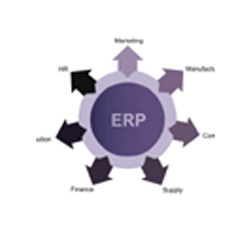Many people may hear the term ERP (Enterprise Resource Planning) and immediately recoil. It’s a well-established fact that ERP can be expensive to buy and extremely difficult to integrate. However, thousands of businesses across the world continue to implement this technology despite the hurdles. Why? Because ERP can offer a vast array of advantages when it is installed and used correctly.
Some executives may shrug off ERP without realizing what it really is and how it can help a business. A longstanding and traditional piece of software, ERP is technology that streamlines a company’s data. Instead of using multiple spreadsheets and different data programs, a single ERP system is integrated into a business’s IT network so that all information can be seamlessly pulled from one screen to the next. This not only saves workers a great deal of time, but can save a vast amount of money too, especially because decisions can be based on real-time data rather than information that has been manually inputted and could be days, weeks or even months, old.
As mentioned previously, there are a large number of commercial benefits to be gained from using ERP. Firstly, efficiency can be improved which, in itself, has further advantages in terms of increased profitability. Having to manually input data often results in inaccuracies and though the discrepancy of a misplaced decimal place may start off small, several months down the line it can result in a huge error. An ERP system only requires data input to occur once and, in some instances, can be set up to automatically add transaction information. This not only provides accurate figures on which often critical decisions can be based, it also reduces labor costs.
Apart from the actual data that it uses, ERP offers the advantage of being a single system from which business reports can be printed. Inventory levels can be checked easily, ensuring that the correct amount of stock is always held. Delivery processes and customer information can be centralized in a single place, which allows an improved level of customer service to be achieved. Incorporating tax compliancy information into the software ensures that reminders can be flagged up to avoid potential fines and legal costs. In addition, with ERP holding all the information a company needs, the decision making process is not only simplified, but also speeded up, allowing firms to react rapidly to changing consumer trends.
Modern ERP is no longer constrained to office hardware and a number of cloud technologies are now enabling software to be accessed via tablets, laptops and even smartphones. This feature means that data retrieval is possible whilst on the move; which can be critical in situations where a sales person is attempting to finalize a major contract, for example. Cloud computing has also reduced initial investment costs, making ERP accessible to small start-up firms as well as international giants. Though ERP is used heavily in the manufacturing sector, the software offers a plethora of benefits for all businesses, from simple accounting solutions through to complex stock and HR resource data. For any company owner or senior executive wanting to streamline their company, improve efficiency and boost performance, investing in ERP will be money well spent.
